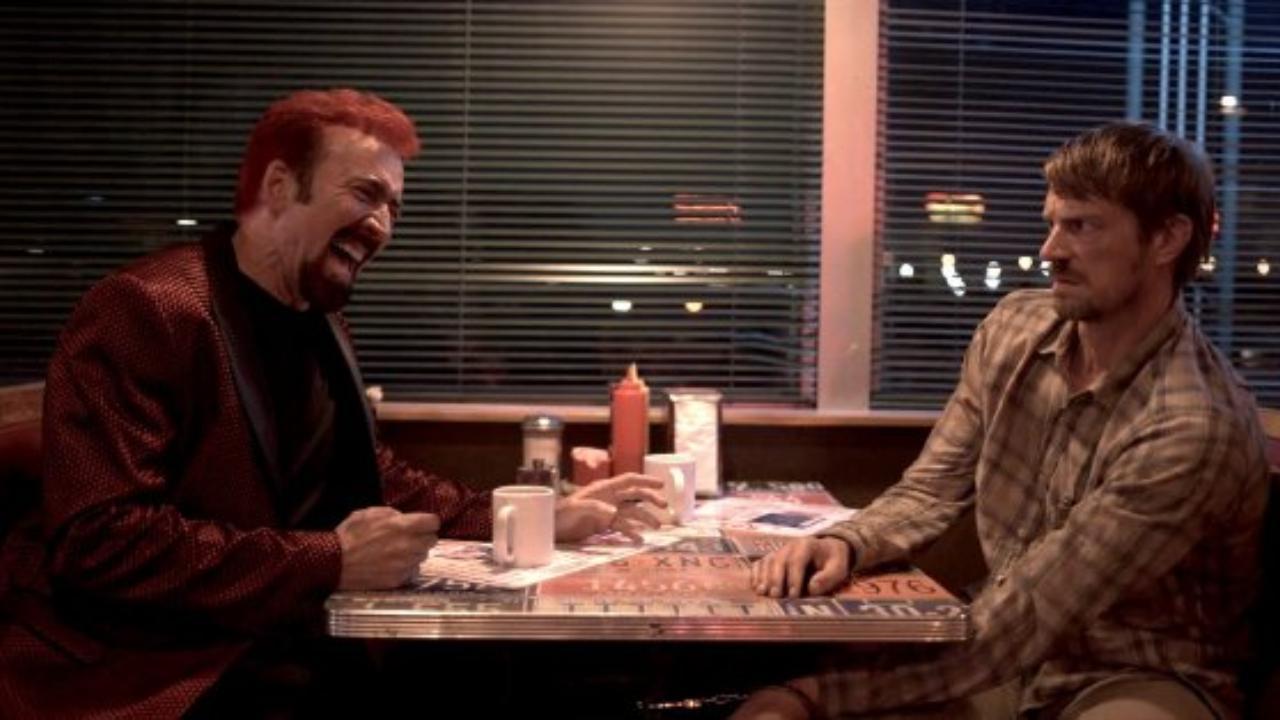Nicolas Cage’s latest attempt to fashion a star vehicle for himself, positions himself as a flamboyantly clad mysterious carjacker who takes his victim David Chamberlain (Joel Kinnaman) on a road trip to hell

Sympathy for the Devil still
Film: Sympathy for the Devil (Lionsgate Play)
Cast: Nicolas Cage, Joel Kinnaman, Alexis Zollicoffer, Cameron Lee Price, Oliver McCullum, Burns Burns, Rich Hopkins, Nancy Good, Kaiwi Lyman Mersereau.
Director: Yuval Adler
Rating: 2.5/5
Runtime: 90 mins
ADVERTISEMENT
Nicolas Cage’s latest attempt to fashion a star vehicle for himself, positions himself as a flamboyantly clad mysterious carjacker who takes his victim David Chamberlain (Joel Kinnaman) on a road trip to hell. The star is in familiar manic mode, making well-trodden beats look distinctive in this this derivative, nebulous road thriller. By the time we experience the ‘reveal’ its already too late for the movie to garner much affection. But that’s not to say that the movie isn’t interesting.
‘Sympathy for the Devil’ feels rather incomplete. It’s as though the narrative missed out on some major development before coming to it’s conclusive end play.
The abductor claims he just wants to be driven to visit his dying mother at a hospital in another city and David appears baffled by the randomness of being chosen for the job. The mysterious carjacker (Cage) may have taken David Chamberlain on a wild night’s ride but it doesn’t show up on screen. Yuval Adler’s film uses elements from more successful road movies and makes the resultant rather tepid and vague. And the late revelations only feel like fictional contrivance.
Israeli director Adler, does well to keep the narrative fluid and racy enough. The action sequences, though modest and infrequent, are competently choreographed and DP Steven Holleran does well to lend a certain nocturnal distinctiveness to his takes. The soundtrack choices aid in augmenting the quirky element here. Adler though, fails to up the tension along the route.
The tone here is never consistent. The narrative could have done well with a little more edginess. But the screenplay doesn’t allow that as the ‘reveal’ is made at a time when the audience has already lost interest in the meaningless ploy of upping the terror quotient without any justification. Luke Paradise’s screenplay has a few potent moments. Both the principal actors do well to maintain their oppressive stand-off. But the flaky context and the flagging conviction puts paid to any major benefit.
 Subscribe today by clicking the link and stay updated with the latest news!" Click here!
Subscribe today by clicking the link and stay updated with the latest news!" Click here!







